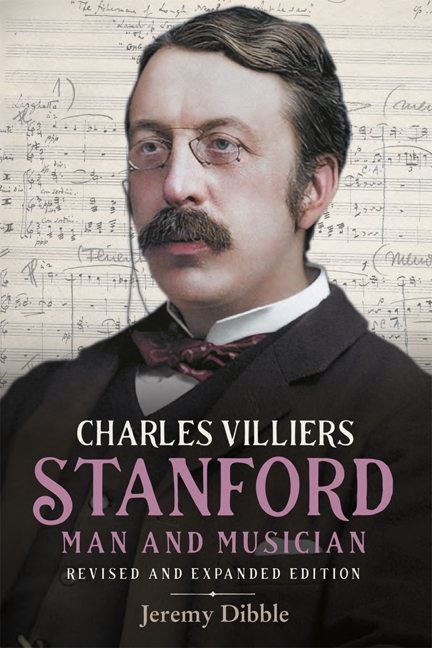Book contents
- Frontmatter
- Dedication
- Contents
- List of Illustrations
- List of Music Examples
- List of Analytical Tables
- Preface and Acknowledgements
- Supplementary Introduction to the Revised and Expanded Edition
- List of Sigla and Abbreviations
- I Early Influences and Impressions, 1852–70
- II Formative Years, 1870–87
- III Recognition, 1888–1901
- IV The New Generation, 1901–14
- V War and Decline, 1914–24
- Appendix: List of Works
- Select Bibliography
- Index of Works
- General Index
- Irish Musical Studies Previous volumes
9 - The Leeds Festival, Knighthood and the New Generation (1901–9)
Published online by Cambridge University Press: 12 May 2024
- Frontmatter
- Dedication
- Contents
- List of Illustrations
- List of Music Examples
- List of Analytical Tables
- Preface and Acknowledgements
- Supplementary Introduction to the Revised and Expanded Edition
- List of Sigla and Abbreviations
- I Early Influences and Impressions, 1852–70
- II Formative Years, 1870–87
- III Recognition, 1888–1901
- IV The New Generation, 1901–14
- V War and Decline, 1914–24
- Appendix: List of Works
- Select Bibliography
- Index of Works
- General Index
- Irish Musical Studies Previous volumes
Summary
At the end of 1900 troops from the Boer War returned home to a hero's welcome as they marched through the dense crowds of London. Lord Salisbury's government had been re-elected with another huge majority, winning on the back of the South African victory, and accusing the Liberal opposition (who opposed the war) of lacking patriotism. Euphoria after the success in South Africa largely concealed the high casualties (over 11,000 men), the ensuing guerrilla war still being prosecuted by pockets of Boers in the Veldt, and the guilty horrors of the concentration camps. Britain, as part of an allied force, had helped to suppress the Boxer Rebellion in China and signed a pact with the Imperial German Government to protect the trading ports of China. Yet, in spite of this show of solidarity by Britain and Germany, there was an inexorable underlying rivalry between the two countries which was reflected in the burgeoning arms race. In Paris the fifth congress of the Socialist International took place to oppose the threat of militarism and war, but its vocal protests did little to influence the growing international instability of the European continent. In Britain the Labour Party was born as the trade unions and three socialist societies gave their assent to a proposal from the Scottish miner James Keir Hardie for a party with a broad church of views to act in Parliament. It was a time of great progress in science with Planck's ‘Quantum Theory’, Freud's Interpretation of Dreams, Evans's archaeological revelations at Knossos on Crete and the flying of Count Zeppelin's airship, while many citizens of Europe travelled to Paris to enjoy the spectacle of the World Exhibition.
On 22 January 1901 the death of Queen Victoria was announced. Coming at the dawn of the new century, her passing marked the end of an era. For Stanford, whose life had been completely shaped by the reign of Britain's longest reigning monarch, the end of her reign also spelt a change in artistic fortune and reception. With the advent of the Enigma Variations, the Sea Pictures, The Dream of Gerontius at Birmingham (albeit in a disastrous performance), the new overture Cockaigne and the Pomp and Circumstance March No. 1, not only had the public taken Elgar to their hearts, but conductors such as Richter and Henry Wood were full of unbridled enthusiasm for the new man.
- Type
- Chapter
- Information
- Charles Villiers StanfordMan and Musician, pp. 389 - 474Publisher: Boydell & BrewerPrint publication year: 2024

